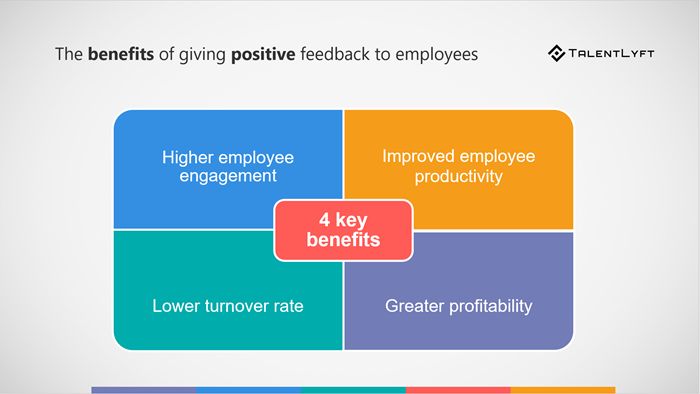The pace of the current competition in most IT niches requires each involved company’s department to constantly develop and grow in performance. A sales department, in particular, being a ‘propelling force’ in any business, should be taken care of in this aspect first and foremost.
The Importance Of A Sales Team
A strong sales team is a key factor in business success. Good sales experts aren’t simply an intermediary between a service provider and a client.
Thus, the overall qualification of your sales department/team members directly affects the following crucial business aspects.
Business growth
It’s pretty obvious, really. The more sales you do, the more rapidly your business is to develop in the long run.
Customer retention
In this matter, it’s important how polite your sales specialists are and how much of an individual approach they are able to provide. These are the ultimate efforts that are considered essential to retaining existing customers and turning newcomers into loyal clients.
Sales lead conversions
If you see that a client takes interest in your product or service, it’s too early to claim success – this is only the first step of the way. That’s yet another thing your sales experts must be sufficiently qualified at – leading potential customers along the sales funnel stages. In the process, they offer an optimal product option, discounts, participation in the loyalty system, support, and everything that can motivate a customer to make a purchase from you exactly.
As a result, a satisfied partner will surely recommend the company to their contacts. They will speak from the perspective of personal experience at that, which makes the word-of-mouth promotion utterly efficient and unobtrusive.
How Does a Sales Team Work
A sales department should be clearly structured. It becomes all the more challenging to manage a sales team when the order is lacking. There are three major methods you can employ to build up your in-house department efficiently:
- Classic – the most common method for small businesses. A sales manager handles the whole marketing cycle – from client search to product distribution.
- Three-level – a sales specialist only handles sales, while other involved employees are responsible for all the paperwork.
- Mixed – outsourcers and interns handle cold calls, while all other responsibilities fall on the manager like in the first method.
The most common tendencies and responsibilities sales experts should focus on to increase the overall efficiency of sales include.
Communication with clients
This might be an obvious one, but the ability to properly communicate with clients implies more than a standard dialogue-holding skill. During client conversations, employees should anticipate clients’ particular demands, keep utterly polite and considerate, handle objections properly, etc.
Communication within the team
A team cannot demonstrate its performing efficiency to the fullest extent without well-adjusted internal team interaction and, what’s more important, mutual support. It’s your major goal to select employees and adjust workflow in a way so that specialists from the same department can feel how they collectively contribute to the mutual cause.
Working with a CRM
Even small businesses tend to employ CRM systems these days. Such solutions help automate numerous routine tasks, letting your employees stay creative and isolated from monotonous, human performance-reducing manual work. Your objective in the matter should be to find a CRM solution that would fit you in terms of pricing and be scalable at the same time.
Reporting
Surely, any sales expert’s professional activity requires timely reporting. Otherwise, one cannot monitor the sales dynamics and performance efficiency of both individual workers and sales team as a whole. And such data may be crucial to the proper adjustment of workflow and optimal further business growth.
Deal-closing
The final level of any sales expert leading a deal to its successful conclusion. That’s why the knowledge and ability to ‘navigate’ sales funnel should be another primary responsibility of any salesperson. They should be able to lead a client from the point of being simply interested in a particular product to factually purchasing it.
Types of Sales Teams
There is a common conception that a sales specialist is kind of a lone wolf. He/she makes personally makes the decisions that provide their work efficiency. However, a single person simply cannot remember everything at once.
In terms of functionality and role distribution, there are recognized four major types of teams:
- Account teams combine an outside sales manager, a deal-assisting specialist, a logistics specialist, a financial expert, etc. The most popular type in head offices.
- Territorial teams service a particular region or territory. They interact with the head office to directly clarify sales-related questions (with the accounting department, for instance).
- Cross-functional teams cover retail, wholesale, and online sales. They require a highly-organized structure and clear role distribution for managing a sales team effectively.
- Specialized teams require a bunch of specialists from different fields. Such teams take up complex, individual or voluminous projects.
Sales Team Employee Roles
In small companies or individual teams, a sales specialist usually works throughout the whole deal cycle – from the initial client call-up to the post-deal paperwork handling. This is a pretty resource-efficient solution that isn’t much efficient in all other aspects, however – fundamental sales processes and client base expanding efforts are quite neglected.
In larger companies, tasks are clearly subdivided between departments:
- A call center handles cold calls, request processing, transaction support, special offer notifications, etc.;
- Sales managers attract new partners in the field conditions;
- Customer success department deals with paperwork and documentation, supports partners, and handles cross-sales.

Sales Team Management Pitfalls
For successful sales team management, you need a competent, expert manager that is able to shake up demotivated employees and help interns start closing their first deals.
According to different sizes and specifics of the business, you can go by one of the following management principles:
- ‘A manager & employees’ – the simplest option for a humble-sized business. WIth further scaling, it becomes obsolete though, as disproportional manager workload appears;
- ‘A commercial director – a department head – employees’ – the most optimal option for a medium-scale company where a director doesn’t only handle sales, but the whole marketing scope;
- Separate team management – there are department/team managers (supervisors) serving as intermediaries between employees and the head of the department. This model fits best larger companies and establishments with branched departments (regional offices, subsidiaries, etc.).

Sales Team Management Strategies for 2019
Not a single field of company activity can be efficient without the organized list of subsequent tasks that lead to a final goal. We can emphasize the following effective ways to manage a sales team to help you out with that.
Find & hire the best workers
A manager should always have an ability to hire a new employee that wouldn’t be having too many problems adapting to the existing team. It’s hard to find a perfect expert, but competent and reasonable workers are still there.
Don’t waste your time on IT-college graduates and go for experienced specialists instead. That way, you’ll be able to avoid employee turnover, get faster results, and reduce educational expenses.
Segment your team
Manage your sales team based on the specifics and abilities of each worker. One can successfully find clients or close deals but absolutely despise paperwork, while another could be more prone to composing documentation. Give everyone a chance to play their part for the sake of common success.
Invest in continued education
Product distribution technologies never standstill. Managers that constantly perfect their skills and knowledge are able to demonstrate some phenomenal results by increasing the yearly company income by 7% and conversion rates by 10%.
Use special tools to manage a sales team
There are numerous aspects you need to handle in marketing departments. The basic ones that should never be ignored and can be facilitated with the specialized tools include the following:
- motivation (leader boards & performance reports);
- competency (use tracking & CRM);
- sales progress (use analyzing tools);
- client-base interaction (employ user rating & feedback).
Establish a good company culture
Corporate culture is among the crucial business elements. 94% of managers and 88% of employees know from personal experience that it aids the overall company development, decreases employee turnover, and boost the work performance – a satisfied & pleased employee is the best employee that can be.
Set individual goals & monitor results
In terms of reaching a general sales plan, check the results of all managers that control a sales team for individual statistics. Your objective is to find out whether enough sufficient efforts were put into solving a task. If an employee makes up excuses for not being able to reach goal post-factum, that’s not your kind of employee.

Train your team/coaching
Constant education is one of the never-failing tips on how to manage a sales team. Regular coaching sessions and seminars can boost the systematic development of professional skills as well as help experts reach personal goals, which always positively affects employee loyalty.
Create sales processes
A sales process is a subsequent set of steps that allow leading a client towards a purchase. Establishing a proper algorithm, you get to systematically close deals, boost the manager’s self-esteem and level of authority before other employees.
Give positive feedback
Positive feedback can turn into another efficient tool to help manage inside sales team. Any kind of positive manners expressed towards sales employees helps them feel the value they bring to the cause. Positively treated workers are 67% more engaged than those whose weak points are constantly emphasized.

Set up communication that works
Proper communication is what makes the difference between a great leader and a standard boss. Communication helps to provide a positive microclimate in a team that, in turn, helps to work faster and with more quality. Efficient contact is the key to forming the unquestionable authority. Organize meetups, communicate through collective education and personally, and always encourage feedback.
Motivate & reward your team
Among the key factors affecting motivation are rewarding and recognition. Cheering and supporting the productivity of workers is the primary responsibility of any manager. In this matter, you can provide:
- significant individual & team rewards;
- transparent rewarding system;
- objective indicators of performance efficiency;
- bonuses.
Stay result-oriented
Try to establish working conditions focused on the key sales indicators. Gathering somewhat competitive specialists ‘under one roof’ to reach the common goal will definitely lead to the boost of overall efficiency. It’s important to see that employees don’t confuse regular activities with performance.
Analyze metrics & results
Implement KPI analysis in order to define how well the team performs as a whole and whether each individual worker dedicates enough time to clients, sets up priorities, and works competently. In general, these key parameters can include:
- the volume of orders & income for a certain period;
- average check;
- a number of new partners & profits from deals with them;
- the loyalty of the existing clients.

Manage expectations
Managing sales isn’t only about the final goal in the form of profits. A clear understanding of objectives by employees, their timely tactical correction, and an ability to take in feedback are the points that define a successful team lead.
Inspire Your Team
Place info panels and infographics in your office, which would highlight a number of deals made by a certain worker and total profits made from them. This would motivate managers that need to catch up and give more confidence to leaders.
How to Manage a Sales Team Remotely
Well-performing sales departments aren’t always concentrated in one place. Remote options are becoming increasingly popular, providing good efficiency at lower expenses, as well as because the remote cooperation model provides:
- wider scope of work candidates – you get an ability to choose the best manager you prefer without any geolocation-based limitations;
- better knowledge of the particular niche-based business;
- lower office rental and maintenance costs as well as lots of other savings.
To manage a remote sales team, you get yet more challenges and tasks to handle as opposed to the standard office model of work. To make it all more accessible, you have to consider the following.
Set clear expectations
Organize regular meetups with your employees to clarify particular goals and explain all the nuances that come along. That is a way to efficiently, face-to-face share your personal vision of your company’s future and establish clear boundaries in the field of each worker’s competency.
Invest in resources everyone can use
In terms of working with a remote team, you should pick software that would be compatible with as many different devices as possible. In such a manner, you will optimize work integration for newcomers and reduce the human factor-caused risks (for instance, if an employee can use the corporate software only from their PC, chances of their missing urgent tasks and notifications while they’re AFK appear).
Build trusting relationships
Try to establish some contact with each member of the team outside the scope of professional interests. This will allow you to gain some social authority instead of remaining simply another higher-position employee.
Encourage social interaction
Last but not least, if there is a possibility, organize corporate meetups, parties, and activities from time to time. Get-together interactions outside of work always bring team members closer and help to break social barriers.
The difficulties of the remote management, however, can be compensated over the top – 91% of employees believe that they are capable of doing more work at home than from the office.

Managing a Sales Team: the Do’s & Don’ts
There are many reasons for the sales team being unable to reach the desired results. The vast majority of factors here depends directly on the leader’s personality, their style, and experience of managing staff.
In order to build a proper working sales mechanism, pay attention to:
- planning – discuss end goals, steps to reach them, and issues that can arise along the way with your team;
- proper feedback – the bright example of how not to manage a sales team is when there is a wall of misunderstanding separating a manager and an employee, demotivating the latter;
- systematic education – take care of boosting your employees’ qualification;
- motivation – it should be transparent. It’s important to reward workers in accordance with the level of their achievements;
- control – trust your employees, but don’t forget that you still need to manage and control all the processes.
How to Set Goals & Objectives
Goals should be realistic, but still challenging to achieve – you should base them on the maximum capabilities of 70% of your team. Otherwise, demotivation may take over. It’s important to keep everything real and performance-oriented.
If we’re talking about how to manage sales team goals and objectives the most efficient, optimized way, we should bring such renowned management systems as Kanban and Scrum. Using both of these, you subdivide global objectives into smaller subtasks, prioritize them, assign responsibility for them, define terms of their completion and… That’s that, really – team workflow is launched.
How to Improve Your Sales Team
The success of a business is a path shared by both clients and team workers. The end result may depend on the adjustment of the team performance. The key factors that will help you boost sales efficiency include:
- Live meet-ups – a great example of how you can get some real feedback and build a friendly collective.
- CRM employment – a centralized system can conveniently reflect and notify about planned events, manager actions, and results or work;
- Automate workflow – monotonous and repetitive processes should take the least amount of time so the success of sales can be directly focused on;
- Client feedback – always inspect client reviews and hear out what other managers have to say. This’ll help define and eliminate many errors;
- Share information – useful profiled info helps to stay up to date and properly react to the latest events.
5 tips to improve sales team performance
Here are 5 brief pro tips to help your company ultimately boost the performance of your sales team.
Show your appreciation towards employees
Nothing can motivate experts to work harder and with more dedication than a worthy perception of their personality in the first place. This doesn’t only go for salary, as there are plenty of situations to handle concerning conflict situations and unsatisfactory results of work.
Create competition
Announcing the overall results of your sales department experts’ work may be useful. In particular, titles like ‘employee of the month’ can serve as a great motivation for others to accomplish and achieve.
Consider rewards
Verbal gratefulness is good and all, but don’t forget about material rewards. It can be a paid vacation or a more standard format of privileges – bonus.
Provide professional growth conditions
Customer requirements in the market constantly change and fluctuate. A certain all-around winning approach of the recent past may be completely obsolete right now. Hiring specialized coaches to conduct sales seminars and such, you get to boost the qualification of your workers and even resolve an employee turnover issue to some extent.
Be a mentor, not a tyrant
The best boss that can be is the one who is ready to become a friend, a mentor in the time of need. You should always care for your employees’ well-being and be grateful for all the work they do. They’ll reply in a similar manner eventually.
Sales Management Books You Should Read
Managers that have spent years handling teams and honing their professional skills are the best mentors there can be. It’s impossible to visit all their seminars, unfortunately, but you can always read the works of some of the most prominent experts:
- “Cracking the Sales Management Code: The Secrets to Measuring and Managing Sales Performance” – Jordan J. & Vazzana M.;
- To Sell Is Human by Daniel Pink;
- Predictable Revenue: Turn Your Business Into a Sales Machine with the $100 Million Best Practices of Salesforce.com by Aaron Ross;
- The Accidental Sales Manager: How to Take Control and Lead Your Sales Team to Record Profits by Chris Lytle.
Choosing the Right Solutions for Sales Team Management
Tactical and strategic decisions made by a manager define the success of the whole team. Adapting all the above-described tips and recommendations to the specifics of your business allows for establishing and open-endedly enhancing the sales departments.
The rightfulness of your solutions will be indicated by results and time you had to spend reaching them. A vivid example is a dialogue between a financial (F) and general (G) CEOs:
F: – ‘Why do we invest in employees if they leave eventually anyway?’
G: – ‘It would be much worse if we didn’t invest in them and they would stay’.
Nimble CRM Features
An integrated CRM system can help manage more KPIs more thoroughly and form proper workflow and employee management reports. There are 36 major KPIs you can monitor and enhance with Nimble CRM, the most significant of which include:
- communication channels & plans reporting;
- average check every manager brings;
- the longevity of deals;
- conversion and margins;
- a number of requests.

Do you want to establish an efficient sales team or perfect the existing department? Get Nimble CRM right now to most properly launch and adjust all the processes for reaching the maximum profitable results.
Conclusion
Managing people is hard and cumbersome work – apart from following company interests, a manager must get to know individual feats of every other employee. All in all, if your sales manager is pleased and satisfied with how everything functions and how they do as a whole, you get to reach the ultimate success.


